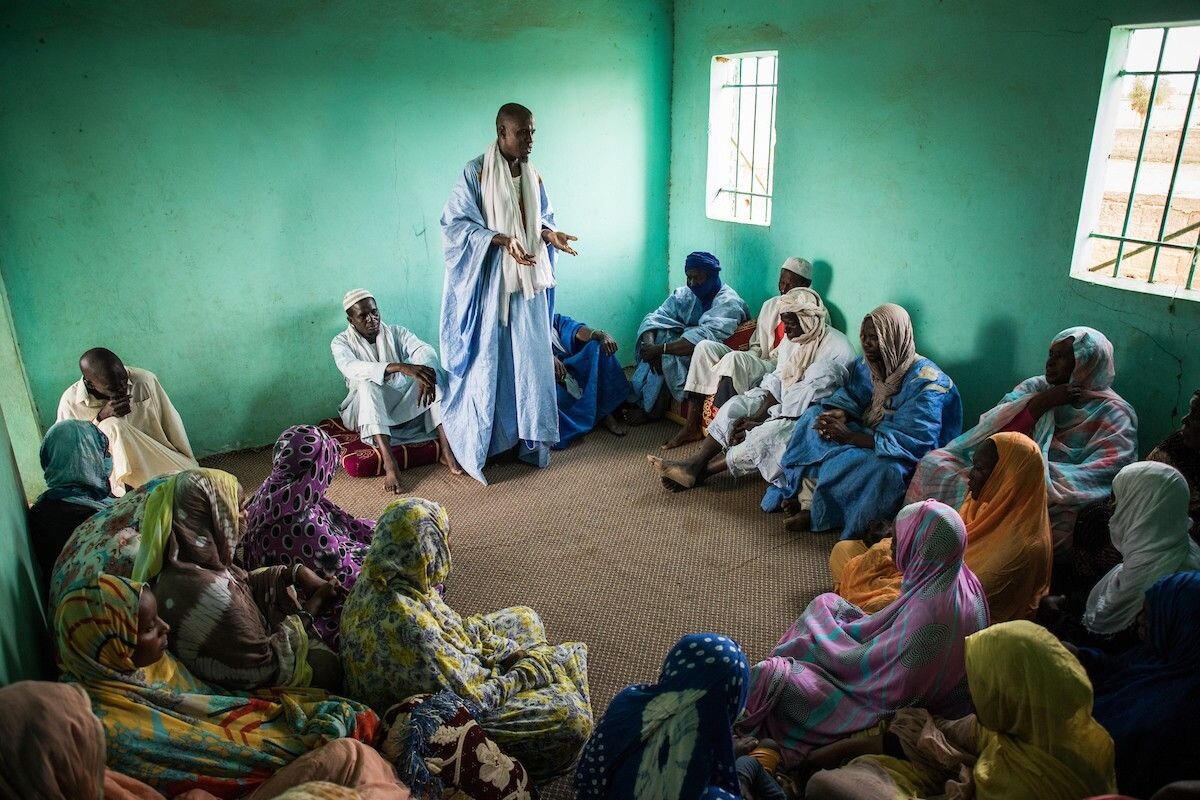International Financial Institutions
Strengthening partnerships with IFIs is key to advancing the ICPD Agenda and achieving Agenda 2030.
SCROLLInternational Financial Institutions (IFIs), including multilateral, regional and national development banks with international operations, are critical development partners to advance the International Conference on Population and Development Program of Action and achieve UNFPA’s three transformative results by 2030: end preventable maternal deaths, end the unmet need for family planning, and end gender-based violence and all harmful practices.
In their engagement with national governments, IFIs operate as development partners and financiers. They assist governments with legislative, institutional and accountability strengthening, while also extending direct financial assistance in the form of grants, concessional and non-concessional loans, risk-sharing instruments, guarantees and equity investments in support of country priorities. The distinct added value they bring is the ability to catalyze, mobilize and crowd in public and private sources of funds for development.
In line with the Secretary-General’s Roadmap for Financing the 2030 Agenda and the Strategic Plan 2022-2025, UNFPA’s focus in the past years has been on developing joint frameworks of collaboration with Multilateral Development Banks to strengthen regional and country-level synergies and support governments accessing sustainable development financing and development expertise. In doing so, UNFPA has become a trusted partner for many IFIs.
UNFPA continues to engage with a growing number of IFIs, both through technical cooperation and implementation of programmes under IFI financing.
The role of UNFPA as an executing partner is linked to supporting governments in both their loan and grant implementations in support of national development priorities or helping IFIs meet successful benchmarks in their grant-financed or loan projects or global corporate initiatives. At the global level, leadership engagement and identification of clear collaboration areas are vital. At the country level, it is imperative to understand the global priorities of the IFIs, along with their specific focus at country level and modalities in each context.
Within financial partnership, UNFPA employs its multifaceted expertise in supporting governments in the implementation of IFIs’ loans or grants through:
UNFPA works with IFIs to foster “non-financial collaborations,” which include:
As a result of an extensive global presence and trusted access to national governments, UNFPA offers impartial expertise to support IFIs maximize the development impact of every dollar invested in grants and government loans.
Through technical knowledge and knowhow in our thematic areas, UNFPA can add value to IFI operations including in the fields of SRHR, young people, gender equality, and population matters. Furthermore, UNFPA’s thought leadership, as an intergovernmental organization can help accelerate the development agenda and harness effectively innovative funding mechanisms/instruments from various financial institutions.
UNFPA has a strong presence in fragile countries and established relationships with relevant national stakeholders. UNFPA’s “boots on the ground” are extremely valuable to many financial institutions, especially when it comes to operations in humanitarian settings. Active in over 150 countries, UNFPA not only bridges the access gap for IFIs, but also supports financial institutions to tailor projects and investments to specific country priorities, which in turn increases country leadership and ownership.
With a far-reaching country presence, UNFPA is able to contribute operational, programmatic and technical capacities to support countries’ access to sustainable financing flows from IFIs. For example, UNFPA partners with governments and financial institutions to set up compulsory charges or levies (small taxes) to fund procurement of sexual and reproductive health commodities and works with governments to meet national SRHR policy and service needs.
Across all contexts, UNFPA is able to successfully add value to IFI operations by harnessing its comparative advantage; drawing on its strong country-presence alongside the ability to rapidly mobilize in support of country development priorities. In 2021 alone UNFPA had a number of ongoing partnerships based on mutual recognition of intellectual leadership, technical robustness, and complementarity of convening powers at all levels - global, regional and country.

Examples of our partnerships
The Sahel Women’s Empowerment and Demographic Dividend SWEDD regional initiative, the result of a joint response by the United Nations and the World Bank Group, is a response to a call made by the presidents of the six Sahel countries: Burkina Faso, Chad, Côte d’Ivoire, Mali, Mauritania and Niger. The project aims to help increase women and adolescent girls’ empowerment and their access to quality education and reproductive, child and maternal health services.
UNFPA and the Islamic Development Bank (IsDB) are partnering to develop a new web-based digital platform for young people in Bangladesh called Alapon Online. Through the platform, young people will be able to call and message counselors free of charge and receive contextualized information on reproductive health and rights, gender-based violence, and other issues relevant to adolescents and youth.
For more information, contact the team at rmb@unfpa.org